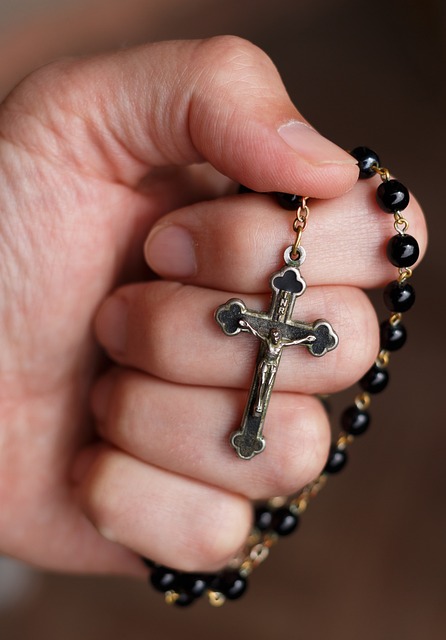Catholicism and Christianity are often used interchangeably, but they are actually two distinct branches of the Christian faith. While both believe in the teachings of Jesus Christ, there are some key differences between the two. In this article, we will explore the differences between Catholicism and Christianity.
Table of Contents
History of Catholicism and Christianity
When it comes to religion, there are many different denominations and beliefs that people follow. Two of the most well-known branches of Christianity are Catholicism and Christianity. While they both share a common belief in Jesus Christ as the Son of God, there are some key differences between the two that set them apart.
Catholicism is the oldest form of Christianity, dating back to the time of Jesus Christ and his apostles. The word “Catholic” actually means universal, which reflects the belief that the Catholic Church is the one true church established by Jesus. The Pope, who is the Bishop of Rome, is considered the spiritual leader of the Catholic Church and is believed to be the successor of Saint Peter, one of Jesus’ apostles.
On the other hand, Christianity is a broader term that encompasses all Christian denominations, including Catholicism. While Catholicism is a specific branch of Christianity, there are many other denominations such as Protestantism, Eastern Orthodoxy, and Mormonism that fall under the umbrella of Christianity.
One of the main differences between Catholicism and Christianity is the role of tradition and authority. In Catholicism, tradition plays a significant role in shaping beliefs and practices. The Catholic Church places a strong emphasis on the teachings of the early church fathers, as well as the decisions made by church councils throughout history. The Pope is also considered infallible when speaking on matters of faith and morals, meaning that his teachings are considered to be without error.
In contrast, many Protestant denominations, which fall under the broader category of Christianity, place a greater emphasis on the Bible as the ultimate authority in matters of faith. Protestants believe in the concept of sola scriptura, which means “scripture alone.” This belief holds that the Bible is the sole source of divine revelation and that all teachings and practices should be based on its teachings.
Another key difference between Catholicism and Christianity is the role of Mary, the mother of Jesus. In Catholicism, Mary holds a special place of honor and is often referred to as the “Mother of God.” Catholics believe that Mary was conceived without original sin and remained a virgin throughout her life. They also believe in the doctrine of the Immaculate Conception, which holds that Mary was preserved from original sin from the moment of her conception.
In contrast, many Protestant denominations do not hold Mary in the same high regard as Catholics. While Protestants acknowledge Mary as the mother of Jesus, they do not believe in the doctrines of the Immaculate Conception or her perpetual virginity. Protestants generally view Mary as a faithful servant of God, but not as a mediator between humanity and God.
Overall, while Catholicism and Christianity share a common belief in Jesus Christ as the Son of God, there are some key differences between the two branches. Catholicism places a strong emphasis on tradition, authority, and the role of Mary, while many Protestant denominations focus on sola scriptura and do not hold Mary in the same high regard. Despite these differences, both branches of Christianity share a common goal of spreading the message of Jesus Christ and living out his teachings in their daily lives.
Beliefs and Practices of Catholicism and Christianity
When it comes to religion, there are many different denominations and beliefs that people follow. Two of the most well-known branches of Christianity are Catholicism and Christianity. While they both fall under the umbrella of Christianity, there are some key differences between the two that set them apart.
One of the main differences between Catholicism and Christianity is the role of the Pope. In Catholicism, the Pope is considered to be the head of the Church and the successor of Saint Peter. Catholics believe that the Pope is infallible when speaking on matters of faith and morals. On the other hand, in other branches of Christianity, such as Protestantism, there is no central authority figure like the Pope. Each individual church or denomination is autonomous and makes its own decisions on matters of doctrine and practice.
Another key difference between Catholicism and Christianity is the use of sacraments. Catholics believe in seven sacraments, which are sacred rituals that are believed to convey God’s grace to the recipient. These sacraments include baptism, confirmation, Eucharist, penance, anointing of the sick, holy orders, and matrimony. In other branches of Christianity, there are typically only two sacraments – baptism and communion. These sacraments are seen as symbolic acts that represent the believer’s faith and commitment to God.
The worship practices of Catholics and other Christians also differ in some ways. Catholics have a more formal and structured approach to worship, with liturgical services that follow a set order and include rituals such as the Eucharist and the recitation of prayers. Other Christians may have more informal worship services that include contemporary music, spontaneous prayers, and a focus on personal relationship with God.
One of the most significant differences between Catholicism and other branches of Christianity is the veneration of saints and Mary. Catholics believe in the intercession of saints and the Blessed Virgin Mary, praying to them for their help and guidance. Other Christians typically do not venerate saints or Mary in the same way, believing that prayers should be directed solely to God.
Despite these differences, Catholics and other Christians share many core beliefs. They both believe in the Trinity – the Father, Son, and Holy Spirit – as well as the divinity of Jesus Christ and his death and resurrection for the forgiveness of sins. They also share a belief in the Bible as the inspired word of God and the importance of living a life of faith and good works.
In conclusion, while Catholicism and Christianity share many fundamental beliefs, there are also some key differences that set them apart. From the role of the Pope to the use of sacraments and the veneration of saints, these differences shape the practices and beliefs of each branch of Christianity. Whether you identify as Catholic or another Christian denomination, it is important to understand and respect the differences that make each branch unique. Ultimately, what unites all Christians is their shared faith in Jesus Christ and their commitment to living out his teachings in their daily lives.
Leadership and Structure in Catholicism and Christianity

When it comes to discussing the differences between Catholicism and Christianity, one of the key areas to consider is the leadership and structure within each faith. While both are rooted in the teachings of Jesus Christ, there are distinct differences in how each religion is organized and led.
In Catholicism, the Pope serves as the leader of the Church. The Pope is considered to be the successor of Saint Peter, who was appointed by Jesus as the head of the Church. The Pope is believed to have authority over all Catholics worldwide and is considered to be infallible in matters of faith and morals. The Pope is assisted by a hierarchy of bishops, priests, and deacons, who help to administer the sacraments and oversee the spiritual needs of the faithful.
In contrast, Christianity as a whole does not have a centralized leadership structure like Catholicism. Instead, each individual denomination within Christianity may have its own leadership hierarchy. For example, in Protestantism, each church may be led by a pastor or minister, who is responsible for overseeing the spiritual life of the congregation. There is no single leader who has authority over all Christians, as is the case in Catholicism with the Pope.
Another key difference between Catholicism and Christianity in terms of leadership and structure is the role of tradition. In Catholicism, tradition plays a significant role in shaping the beliefs and practices of the Church. The teachings of the Church are based not only on the Bible but also on the teachings of the early Church fathers and the decisions of Church councils. This emphasis on tradition helps to provide continuity and stability within the Church.
On the other hand, many Protestant denominations place a greater emphasis on the Bible as the sole authority for faith and practice. Protestants believe in the principle of sola scriptura, which means “Scripture alone.” This means that they believe that the Bible is the ultimate authority in matters of faith and that tradition should not supersede the teachings of Scripture.
Despite these differences, both Catholicism and Christianity share a common belief in the importance of leadership and structure within the Church. Both recognize the need for spiritual guidance and pastoral care for the faithful. While the specific roles and responsibilities of leaders may vary between the two faiths, the ultimate goal is the same: to help believers grow in their relationship with God and live out their faith in the world.
In conclusion, the differences in leadership and structure between Catholicism and Christianity highlight the diverse ways in which these two faiths are organized and led. While Catholicism has a centralized leadership structure with the Pope at the helm, Christianity as a whole is more decentralized, with each denomination having its own leadership hierarchy. Despite these differences, both traditions emphasize the importance of spiritual leadership and pastoral care for the faithful. Ultimately, both Catholicism and Christianity seek to help believers grow in their faith and live out their beliefs in a meaningful way.
Sacraments and Rituals in Catholicism and Christianity
When it comes to discussing the differences between Catholicism and Christianity, one of the key areas to explore is the sacraments and rituals that are practiced within each faith. While both Catholicism and Christianity share many core beliefs, there are distinct differences in how these beliefs are expressed through sacraments and rituals.
In Catholicism, the sacraments play a central role in the life of a believer. There are seven sacraments in the Catholic Church: Baptism, Confirmation, Eucharist, Penance, Anointing of the Sick, Holy Orders, and Matrimony. These sacraments are seen as outward signs of inward grace, through which believers receive God’s blessing and are brought closer to Him.
In contrast, many Protestant Christian denominations do not place as much emphasis on the sacraments. While some Protestant churches do practice sacraments such as Baptism and Communion, they may not view them in the same way as Catholics do. For example, Baptism in Protestant churches is often seen as a symbolic act of faith, rather than a means of receiving grace.
Another key difference between Catholicism and Christianity is the role of rituals in worship. In Catholicism, rituals are an integral part of the worship experience. Mass, the central act of Catholic worship, is filled with rituals and symbols that help believers connect with God and each other. From the lighting of candles to the recitation of prayers, every aspect of the Mass is carefully choreographed to create a sense of reverence and awe.
In many Protestant Christian churches, rituals are less formal and structured. Worship services may include elements such as singing, prayer, and preaching, but the focus is often on the message of the Gospel rather than on specific rituals or ceremonies. Some Protestant churches may even eschew traditional rituals altogether in favor of a more contemporary worship style.
Despite these differences, both Catholicism and Christianity share a common belief in the importance of sacraments and rituals as a means of expressing faith and connecting with God. Whether through the sacraments of Baptism and Communion or the rituals of Mass and worship, believers in both traditions seek to deepen their relationship with God and live out their faith in tangible ways.
In conclusion, while there are distinct differences in how sacraments and rituals are practiced in Catholicism and Christianity, both traditions share a common goal of seeking to honor God and live out their faith in meaningful ways. Whether through the solemn rituals of the Catholic Mass or the more informal worship services of Protestant churches, believers in both traditions find ways to express their devotion and draw closer to God. Ultimately, it is this shared commitment to faith and worship that unites Catholics and Christians despite their differences in practice.
Interpretation of Scripture in Catholicism and Christianity
When it comes to the interpretation of scripture, there are some key differences between Catholicism and Christianity. While both religions are rooted in the teachings of Jesus Christ, they have distinct approaches to understanding and applying the word of God.
In Catholicism, the interpretation of scripture is guided by the teachings of the Magisterium, which is the official teaching authority of the Catholic Church. The Magisterium consists of the Pope and the bishops, who are considered to be the successors of the apostles. They are responsible for interpreting scripture and ensuring that the faithful adhere to the teachings of the Church.
One of the key principles of Catholic interpretation is the concept of tradition. Catholics believe that scripture is not the only source of divine revelation, but that tradition also plays a crucial role in understanding God’s will. This tradition includes the teachings of the early Church fathers, the decisions of ecumenical councils, and the writings of the saints. By drawing on this rich tradition, Catholics seek to interpret scripture in a way that is consistent with the teachings of the Church.
In contrast, many Protestant Christians believe in sola scriptura, which is the idea that scripture alone is the ultimate authority in matters of faith and practice. They reject the idea of tradition as a source of divine revelation and instead focus solely on the Bible as the inspired word of God. Protestant Christians believe that each individual has the right and responsibility to interpret scripture for themselves, guided by the Holy Spirit.
This difference in approach to scripture has led to some significant theological differences between Catholics and Protestants. For example, Catholics believe in the doctrine of purgatory, which is not explicitly mentioned in the Bible but is based on the interpretation of certain passages by the Magisterium. Protestants, on the other hand, reject the idea of purgatory as unbiblical and instead focus on the concept of salvation by faith alone.
Another key difference in interpretation between Catholics and Protestants is the role of Mary, the mother of Jesus. Catholics venerate Mary as the Mother of God and believe in her intercessory power. This belief is based on a combination of scripture and tradition, including the writings of the early Church fathers. Protestants, however, tend to have a more reserved view of Mary, seeing her as a faithful servant of God but not as a mediator between humanity and Christ.
Despite these differences, both Catholics and Protestants share a common belief in the importance of scripture as a guide for faith and practice. While they may interpret certain passages differently, they both look to the Bible as a source of divine revelation and seek to live out its teachings in their daily lives.
In conclusion, the interpretation of scripture in Catholicism and Christianity is influenced by a variety of factors, including tradition, the teachings of the Church, and individual interpretation. While there are some key differences between the two religions, both Catholics and Protestants share a deep reverence for the word of God and seek to live out its teachings in their lives. Ultimately, the goal of both traditions is to draw closer to God and to live in accordance with his will as revealed in scripture.
Conclusion
In conclusion, Catholicism is a specific branch of Christianity that follows the teachings of the Roman Catholic Church, while Christianity is a broader term that encompasses various denominations and beliefs. The main differences between Catholicism and other Christian denominations include the role of the Pope, the use of sacraments, and the interpretation of scripture. Despite these differences, both Catholicism and Christianity share a belief in Jesus Christ as the Son of God and the savior of humanity.
For licensing reasons, we must provide the following notice: This content was created in part with the help of an AI.


